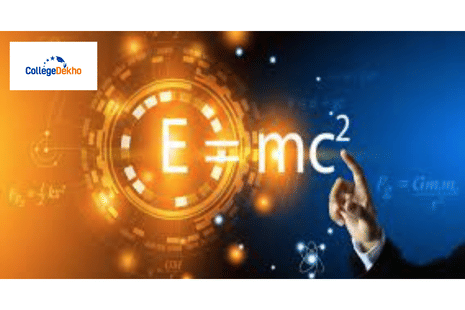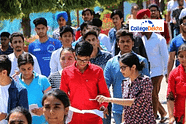IIT JAM Physics (PH) 2025 was held on February 2, 2025. Check out all necessary details about the exam, including important dates, syllabus, topic-wise weightage, previous year cutoff, here!

IIT JAM Physics 2025: IIT Joint Admission Test for MSc serves as the principal gateway to enrolling at renowned IITs and IISc colleges. Physics is one of the popular subject choices through JAM that often increases the challenging level of questions. To enhance chances of selection, gaining vivid insight into the IIT JAM Physics exam pattern , syllabus, and important topics is vital. IIT Delhi has already updated IIT JAM exam dates and syllabus on the official website. IIT JAM 2025 exam was held on February 2, 2025.
You can download the syllabus PDF along with the latest updates on the exam schedule. If you are curious to discover the details on the IIT JAM Physics date, syllabus, important topics, and previous year questions, keep reading this article.
IIT JAM 2025 Important Dates
Candidates can check out all the IIT JAM 2025 Important dates in the table provided below:
Events | Dates (Tentative) |
|---|---|
IIT JAM 2025 Online Application Processing System (JOAPS) Website Opens | 3rd September, 2024 |
IIT JAM 2025 Last Date for Closing Registration | 11th October, 2024 |
To Upload a Valid OBC-NCL/EWS Certificate | 20th November, 2024 |
Last Date to Change the Examination Cities/Test Papers/ Category/ Gender | 18th November, 2024 |
Confirmation of Compensatory Time/Scribe Assistants | 30th December, 2024 |
IT JAM 2025 Admit Card Availability on the Online Application Portal | Early January, 2025 |
IIT JAM 2025 Exam Date | 2nd February, 2025 |
IIT JAM 2025 Provisional Answer Key | 14 February, 2025 |
IIT JAM 2025 Response Sheet | 14 February, 2025 |
IIT JAM Provisional Answer Key Challenge Window | 14 -20 February, 2025 |
Announcement of IIT JAM 2025 Result | 19th March, 2025 |
IIT JAM 2025 Final Answer Key | 19th March, 2025 |
Check out: IIT JAM Physics (PH) Predicted Question Paper 2025
IIT JAM Physics 2025 Syllabus
We have compiled section-wise topics that students need to cover from the IIT JAM Physics 2025 syllabus.
Sections | Topics |
|---|---|
Mathematical Methods | Green’s theorem, Algebra and complex numbers, Fourier series, Vector algebra, Vector calculus |
Modern Physics | Wave-particle duality, Uncertainty principle, inertial frames, and Gaellian invariance, the superposition principle |
Oscillation Waves and Optics | Doppler Effect, Wave equation, energy density and energy transmission in waves, Fermat’s principle |
Kinetic Theory, Thermodynamics | Elements of Kinetic theory of gases, Equipartition of energy, Laws of thermodynamics |
Electricity and Magnetism | Coulomb’s law, Gauss’s law, Faraday’s law electromagnetic induction, simple DC and AC circuits with R, L and C components |
Mechanics and General Properties of Matter | Newton’s laws of motion and applications, Elastic and inelastic collisions, kinematics of moving fluids, equation of continuity |
Solid State Physics, Devices & Electronics | Crystal structure, X-ray diffraction, and Bragg’s law, characteristics in CB, CE, and CC modes, Fermi level p-n junction diode |
Students can check out IIT JAM Physics 2024 Syllabus PDF
IIT JAM Physics Previous Year Question Papers
Solving previous year's question papers can pave the way for academic excellence. Students revise the IIT JAM Physics previous year question papers to ace tehri preparation. Check out the IIT JAM Physics previous year question papers from 2018-2023 in the link provided below and start practicing:
Previous Year Question Papers | Answer Key |
|---|---|
IIT JAM Physics 2025 Topic-wise Weightage
The topic-wise weightage for IIT JAM Physics 2025 is in the table below. This helps you prioritise your time allowing you to know which topics are more important.
Topics | Percentage |
|---|---|
Solid State Physics, Electronic Devices & Boolean Algebra | 20% |
Mathematical Physics | 15% |
Oscillations, Waves, and Optics | 15% |
Kinetic theory, Thermodynamics | 12% |
Electricity and Magnetism | 12% |
OTHER TOPICS (Mechanics, Quantum Mechanics etc.) | 26% |
Also Read: IIT JAM 2024 Exam Day Guidelines, Important Points, Last Minute Tips
Students must master all of the IIT JAM Physics concepts and theories in order to pass IIT JAM Physics 2025. As a result, students must strive for excellence and prepare for the exam.
For more information and the latest updates on IIT JAM 2025 stay tuned with CollegeDekho.
Are you feeling lost and unsure about what career path to take after completing 12th standard?
Say goodbye to confusion and hello to a bright future!

Was this article helpful?


















Similar Articles
DU NCWEB Admission 2025: Eligibility Criteria, Documents Required, Selection Process, Cutoff & Latest Updates
AIFSET 2025: Result (Out), Registration (Phase 4 - Ongoing), Admission Process & Latest Updates
State Wise List of CUET PG 2025 Participating Colleges, NIRF Rankings
List of BSc Agriculture Colleges for 5,000 to 10,000 Rank in KCET
List of Documents Required for IISER Aptitude Test 2025
CUET Political Science Syllabus 2025 (Released): Download PDF Here!